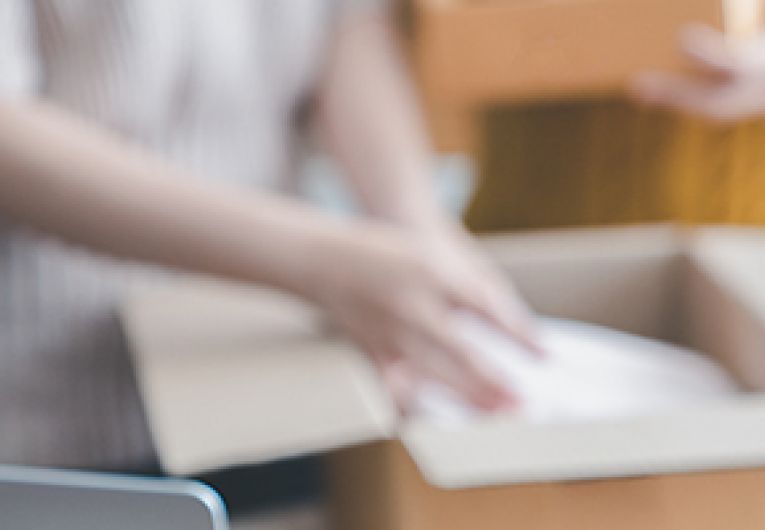
Small Business Bounce Back By Making Smart Investments in Contactless Payment Options
Nearly half of U.S. small businesses (48 percent) have made significant investments in contactless payment systems. A timely occurrence as more than 50 percent of consumers now expect to pay for purchases using nontraditional methods.
Small Businesses recovering from the past year are improving their payment methods in response to these changing consumer needs, according to The Visa Back to Business Study, 5th edition.
"Those pivots proved to be smart for business, as the preference for contactless and digital shopping experiences are changing how we shop for good," according to the report. "Many SMBs continue to face unique obstacles, from local health and safety restrictions to financial instability, the rapid pace of change in global commerce has forever altered how SMBs operate, rebuild and get back to business."
Businesses Respond to Shifting Consumer Needs
While consumers seek to show support by spending at their local businesses, they still expect to do so easily.
The report states that two-thirds of customers now expect contactless payment options at brick-and-mortar stores.
"The rise of community while weathering the pandemic has consumers coming back for more, a sign of better times for local businesses," according to the report.
"The rise of community while weathering the pandemic has consumers coming back for more, a sign of better times for local businesses." - The Visa Back to Business Study, 5th edition.
Still, more than two in five consumers shared that they wouldn't shop at a store that just offered options requiring contact or a shared device.
Other findings in the report include:
- Almost three in five (57%) consumers say COVID-19 has permanently changed how they will pay.
- Fifty-two percent of consumers in urban areas are more likely to adopt contactless payments compared to 40% and 26% of consumers in suburban and rural areas, respectively.
- More than half (54%) of consumers expect brick-and-mortar stores to accept contactless cards as payment.
Curbside Pickup, QR Codes, BOPIS Trending Upward
Digital and contactless payments became the preferred transaction method of consumers during the pandemic, as health and safety remained top of mind.
As consumers begin to transition during this recovery period, omnichannel approaches such as curbside pickup, QR codes, and "buy online, pick up in-store,” or BOPIS, will likely remain a preference.
Curbside pickup, which allows customers to order items in advance and then pick them up without leaving their vehicles at the store, has been a growing form of service offered by businesses to reach shoppers who prefer minimal contact.
During the past year, more than half of retailers implemented or grew their BOPIS and curbside pickup offerings, according to data collected by Software Advice, a firm that assists small businesses in navigating the software buying journey.
Other findings of the report include:
- 38% of retailers permanently increased priority for e-commerce and digital presence, including social media platforms, for the upcoming year.
- More than three-quarters (83%) of retailers report a moderate to significant amount of sales shifting to e-commerce from brick-and-mortar in the past year.
Make it Easy for Contactless Payments
Before the pandemic, most small businesses viewed digital and contactless payment methods as nice-to haves.
These days, more small businesses are offering contactless payment options to make it easier for customers to make purchases and appease those interested in safe shopping experiences.
Some of the ways businesses may implement contactless payment options within their operations are through:
- Payment processing companies provide services to businesses by managing credit card processing and other similar payments, including encrypting customer information.
- All-in-one services such as Square can process in store, mobile and online payments for businesses wanting to accept and process digital payments. Square works best for companies with low average transactions that want flat-rate processing.
- PayPal is ideal for businesses that primarily sell to customers online while trying to increase conversions and decrease cart abandonment.
- Payment Depot is a merchant service provider with a membership pricing model that's highly competitive, appealing to high volume businesses such as medical and B2B operations.
As small businesses focus on attracting new customers while bringing back existing ones, it's vital to ensure operations remain safe, convenient, and efficient. By incorporating digital and contactless payment methods into their day-to-day operations, small businesses are more likely to succeed at maneuvering the road to financial recovery.
The trends, insights, and solutions you need to grow your business.
By signing up, you’re subscribing to our monthly email newsletter, The
Wire. You may unsubscribe at any time.
Your information stays safe with us. Learn more about our privacy
policy.











![[#MSP_NAME#] Logo](/themes/sparklight_business/images/transition-logos/migration-banner-logo-[#MSP_CD#].png)
